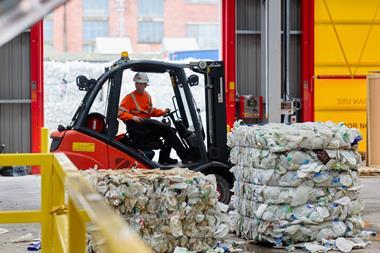A survey of public attitudes to chemistry reveals misconceptions on both sides
‘Wad some pow’r the giftie gie us, to see oursels as others see us.’ So mused Robert Burns, in a poem penned after watching a brash louse creep and teeter atop its unknowing host’s best bonnet in church one Sunday. It’s a humiliating experience for poor ‘Jenny’, but for those brave enough to find out, learning how others perceive us can strip away assumptions we didn’t even know we held.
The Royal Society of Chemistry recently invoked the pow’r of survey consultants to identify how chemistry and chemists are viewed through the eyes of the UK public. Mark Peplow has discussed some of the results, and the press conference launch at the start of June stimulated some interesting debate.
One of the most striking findings is how mistaken chemists’ own views of their vocation and its outputs are. Chemists are often defensive, wary that a credulous public, beset on all sides by unscrupulous or lazy news vendors, has been taught to fear and mistrust them. The fears are not unfounded – last month’s ‘chocolate sting’ is a prime example: careless journalists were duped into publishing stories on a deliberately flawed study designed to show just how easily these stories can be generated, and how far they can spread.
But it turns out the public is capable of holding a much more nuanced understanding than chemists had assumed. Moreover, they don’t really know who chemists are, anyway. (A rather bitter dose of humility for the somewhat hubristic assumption that chemists might enjoy such widespread infamy.)
It’s a lesson we can all learn – we ought to get out more. In all walks of life, we almost inevitably surround ourselves with like-minded and typically like-employed people. Our social media circles may be larger, but often no more diverse. This reinforces our conceptions, valid or otherwise, and means our views and opinions are seldom challenged.
And while chemists can share in condemning and criticising the media’s mishandling of science stories, and in despairing of an uninformed populace, we should also remember that the knowledge that joins us is only as valuable as the use to which it is put.
Perhaps worse is the possibility that we may even be complicit in anonymising chemistry. Campaigns to promote science often emphasise the breadth of opportunities afforded by chemistry, and there has been a move to distance ourselves from the admittedly overused image of a white-coated lab worker. But as Philip Ball notes, this is part of our culture, part of our identity – one of the most recognisable images of ‘science’ is in fact a portrayal of the chemist. It’s a branding opportunity that we could turn to our advantage. Chemists do wear white coats. And they work in labs, and they conduct experiments, and they make chemicals. And that’s a perfectly good thing – we should embrace it.
If we are more cognisant of reality, and not what we assume it to be, then ‘what airs in dress and gait would leave us’?
Philip Robinson, deputy editor
Please take a moment to complete our survey












No comments yet